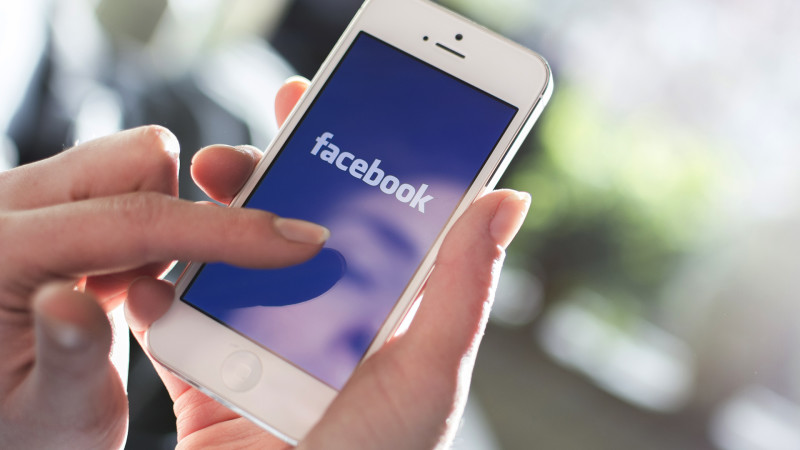Social media sources are a time drain — there is no denying that. What happens when you remove this time drain from your daily life? What benefits will you reap, and what negative effects will you experience? Will you become a social outcast if you’re not up-to-date with the worldwide news? To answer these questions, I went on a week-long cleanse from social media.
A large portion of the time that you spend on your phone is spent browsing through Instagram, Twitter, Facebook, Snapchat and other social apps. I was completely unaware that I spent nearly three hours a day on my phone until I checked my “Screen Time” in iOS settings. Ohio University’s The Post surveyed 50 students and found, “Students who took the survey spent an average of about four hours and 25 minutes on their phones — 50 minutes more than the national average of three hours and 35 minutes per day that eMarketer found US adults spend on their phones.”
In the app I used for this experiment, I was able to see how many times I picked up my phone, time spent on each app and notifications per day. You may be surprised by how quickly your screen time adds up. Even without social media, I was averaging about an hour a day staring at my phone screen.
The goal of this experiment was to document the effects I felt from deleting social media apps for one week. It is important to note that there is the possibility of confounding variables in my results; a productivity increase may actually be the result of higher caffeine intake instead of lack of social media. I didn’t track all these confounding variables, so it is important to acknowledge their likely influence on my experiment.
I mainly used Instagram for entertainment and to ease my boredom. On Instagram, I had three accounts, was an active member of many group chats and used it as a source for both my social happenings and real-world news. I also used Snapchat and Twitter whenever Instagram got boring. Once in a blue moon, I would hop on Facebook to see what my parents were up to and take a glimpse into the world of old people.
Deleting my social media was not an easy task. I decided it would have to be done like taking off a band-aid — fast and without hesitation. In my 8 a.m. Monday economics class, I deleted my social media.
I can’t say that there wasn’t a sense of loss. Judging by the countless times I tapped away at where Instagram used to be on my home screen, I probably had some sort of subconscious denial going on. Luckily, this “itch” faded around day four of the experiment.
Deleting social media forces you to be present with yourself. Without it, you no longer have a way to ease feelings of boredom, frustration, laziness and loneliness. However, with boredom comes curiosity. I found that while being distraction-free, I had a more productive mindset. Without Instagram and Twitter, reading actual books became a lot more interesting than before. Without Snapchat, I gained an amateur appreciation for cool photos. Without Facebook, I haven’t kept up with the ladybug invasion terrorizing my hometown.
That productive mindset translates into tangible productivity. Studying, homework, extracurriculars and other parts of student life are more meaningful, and thus I applied more effort to them. I’ve noticed a considerable increase in personal determination and effort towards academics and extracurriculars.
Deleting social media opens a gap in your life that has otherwise been filled for quite a while. Rarely do I recall a fraction of the massive load of information that I am exposed to on social media. The constant stimulation that occurs when social media is available is distracting and a hindrance to your concentration. Some thoughts take time to develop, and a Snapchat, direct message or Tweet can stop those thoughts from developing.
Those who delete social media will also experience better sleep. Electronic screens emit blue light, which has been found to negatively impact sleep due to the light delaying the release of melatonin, which promotes sleep in the body. Compared to trying to sleep after being over-stimulated from social media, I observed an easier time drifting off when reading a book before bed.
It is common practice by students to disconnect from their phone while focusing on a task. While this may be effective when studying, it also serves as proof that social media is a distraction, and, it becomes necessary to recognize social media as a threat towards reaching that mindful state required for studying. This makes me wonder, what would happen if the same distraction-free focus was applied all day?
Obviously, a distraction-free day would be difficult. Many social interactions today rely on the use of text messaging, which is itself distracting. In order to achieve a truly distraction-free day, a cell phone, among many other things, could not be present.
In the end, the experiment did not stop after a week. Four weeks later, I still have no social media on my cell phone, and I doubt I will redownload it while at college. I am reaping the benefits of the constant distraction-free environment, and although it may seem like I am disconnected from my friends, I have realized that the fewer conversations carried out through text message, the more meaningful the friendships are.
If you’re looking to get better sleep, be more productive, become more focused, creative and mindful as finals approach, deleting social media from your cell phone is a great way to do so. It is important to keep in mind that you don’t need to delete it forever, but a week-long cleanse may allow you to focus on work, studying or a project at hand. Being an active member of a social media source requires your time. If you’re feeling stressed and short on time, deleting social media is a great way to free up a few hours of your day.
Jeffrey Epro can be reached at [email protected].




















Alan • Dec 12, 2020 at 9:39 am
I like your article it was inspired me to delete my Facebook and twitter accounts,I will delete my YouTube account as well as I find that the most distracting..